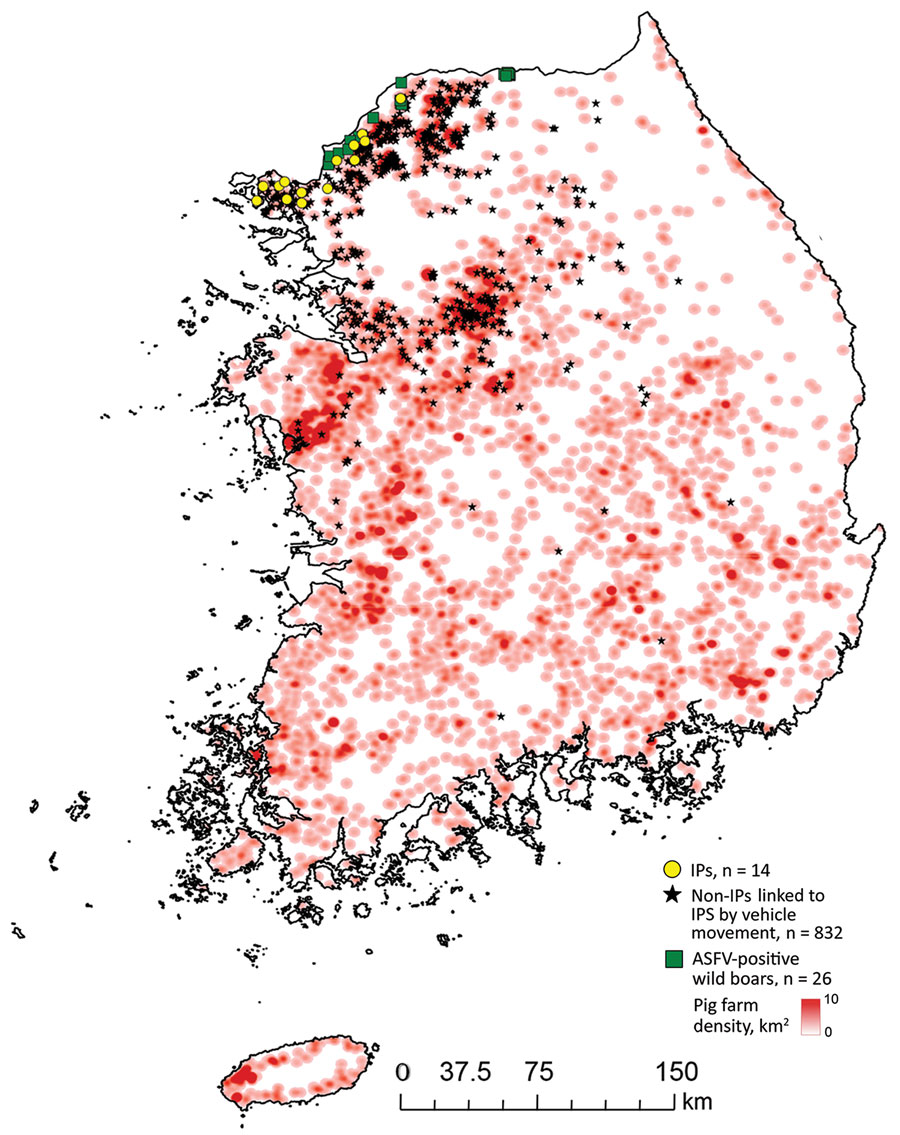Volume 27, Number 7—July 2021
Research
Transmission Dynamics of African Swine Fever Virus, South Korea, 2019
Figure 1

Figure 1. Spatial distribution of registered domestic pig farms in South Korea, indicating African swine fever–positive farms (IPs); ASFV-positive wild boars, confirmed during the study period (August 28–October 16, 2019); and pig farms visited by vehicles that had visited IPs >1 time during the study period. ASFV, African swine fever virus; IP, infected premises.
1These authors contributed equally to this article.
Page created: May 14, 2021
Page updated: June 16, 2021
Page reviewed: June 16, 2021
The conclusions, findings, and opinions expressed by authors contributing to this journal do not necessarily reflect the official position of the U.S. Department of Health and Human Services, the Public Health Service, the Centers for Disease Control and Prevention, or the authors' affiliated institutions. Use of trade names is for identification only and does not imply endorsement by any of the groups named above.